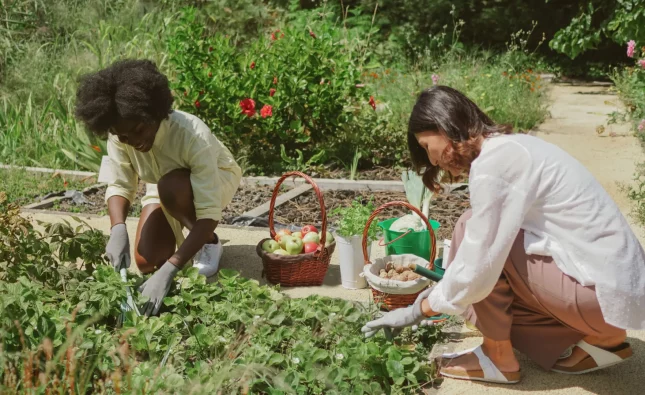
Introduction:
Summer is the perfect time to enjoy the bountiful harvest from your garden. Whether you have a small backyard plot or a few pots on your balcony, there are several ways to maximize your garden’s yield and savor the flavors of the season. In this article, we will explore some tips and techniques to help you make the most of your summer garden.
1. Plan and Prepare:
Before planting your garden, it’s essential to plan and prepare. Consider the available space, sunlight, and soil conditions. Choose the right plants that thrive in your region and are suitable for the summer season. Take into account the time it takes for each plant to mature and plan your planting schedule accordingly.
2. Start with Healthy Soil:
Healthy soil is the foundation for a productive garden. Ensure your soil is well-drained, rich in organic matter, and has the right pH level for the plants you intend to grow. Test your soil’s pH and amend it if necessary. Add compost or well-rotted manure to improve soil fertility and structure.
3. Water Wisely:
Proper watering is crucial for a successful garden. Water your plants deeply and infrequently to encourage deep root growth. Avoid overwatering, as it can lead to root rot and other diseases. Consider using drip irrigation or soaker hoses to deliver water directly to the plant roots and minimize water wastage.
4. Mulch for Moisture Retention:
Mulching is an effective way to conserve moisture in the soil, suppress weeds, and regulate soil temperature. Apply a layer of organic mulch, such as straw, wood chips, or shredded leaves, around your plants. This will help retain moisture, reduce evaporation, and keep the soil cool during hot summer days.
5. Practice Companion Planting:
Companion planting involves growing compatible plants together to maximize their growth and deter pests. For example, planting marigolds alongside tomatoes can help repel nematodes and other harmful insects. Research companion planting combinations that work well for the plants in your garden.
6. Regular Maintenance:
Regular maintenance is essential to keep your garden healthy and productive. Remove weeds regularly to prevent them from competing with your plants for nutrients and water. Monitor your plants for signs of pests or diseases and take appropriate action promptly. Prune and train your plants as needed to promote better airflow and sunlight penetration.
7. Harvest at the Right Time:
To enjoy the best flavors and nutritional value, harvest your crops at the right time. Different vegetables and fruits have different indicators of ripeness. For example, tomatoes should be picked when they are fully colored and slightly soft to the touch. Harvest leafy greens when they are young and tender. Refer to gardening resources or seed packets for specific harvesting guidelines.
Conclusion:
With proper planning, care, and maintenance, you can maximize your garden’s bounty and enjoy a summer harvest delight. By following these tips and techniques, you can create a thriving garden that provides you with an abundance of fresh, flavorful produce throughout the summer season. So roll up your sleeves, get your hands dirty, and savor the rewards of your hard work in the garden. Happy gardening!










